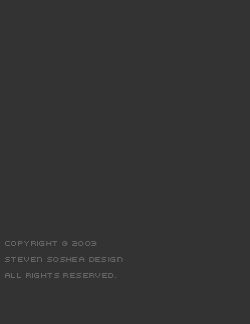
 |
In
understanding the practice of design through the methodology of
Organic Multiplicity, particular attention must be given to the
ideas of nurturance and growth as central themes within any endeavor.
This positive approach to engaging in design can enable greater
individual creative development and provide a more productive and
constructive approach to management. As a business model for industry,
Organic Multiplicity would promote a more environmentally harmonious
way of engaging in the capitalist system. Nurturance
and growth are critical components in the healthy development of
the creative self. Being supportive to others and to ourself brings
forth courage and determination. Having an open mind to change and
adaptation allows for gaining insight and wisdom. Retaining our
curiosity and enthusiasm allows us to see the uniqueness of every
moment and the simple wonders of the world in which we live. By
being involved in these processes of nurturance and growth, While traditional methods of management focus on the defects and imperfections of our personalities, Organic Multiplicity promotes nurturance and growth through a positive management strategy based upon the idea of enhancing our natural abilities and enabling them to grow and evolve. This approach to management is inspired by "First, Break All the Rules," a book written by Marcus Buckingham and Curt Coffman of The Gallup Organization. Their management strategy is based upon "Four Keys:" hiring employees based upon their natural talents; managing employees by defining their goals and desired outcomes, rather than by micromanaging their methods and processes; focussing on strengths and abilities of employees, rather than their defects or imperfections; and finally, as employees grow, encouraging them to find meaningful roles within the organization. These nurturing goals are fully embraced by the methodology of Organic Multiplicity. Beyond
its role in industry as the mechanism for the creation and evolution
of a brand's marketing promise, design can be considered as a methodology
for development and deployment of products or services. Within this
broader definition of the role of design in industry, the methodology
of Organic Multiplicity would bring a number of opportunities to
the business community. |
 |